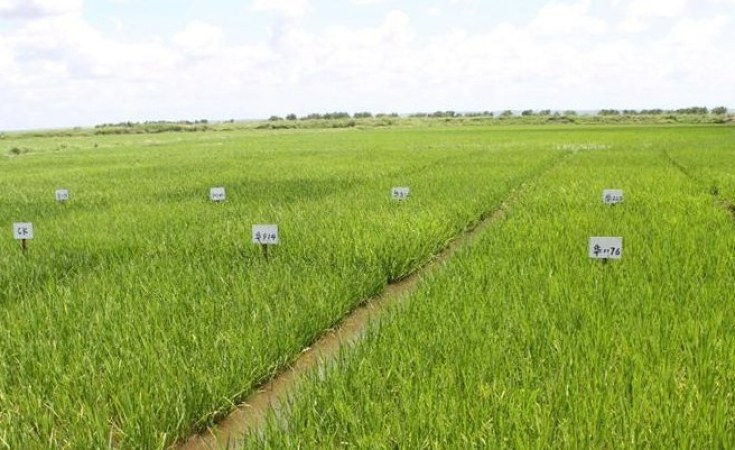Addis Ababa, — China's perennial rice technology, which is considered as the most representative breakthrough in the innovative utilization of agricultural germplasm resources in China, is believed to help improve food security in Africa.
Recently, perennial rice was included in the agricultural technology promotion framework at the High-Level Ministerial Session of the fifth African Union Specialized Technical Committee on Agriculture, Rural Development, Water and Environment (ARDWE), and was listed in the "AU Seeds and Biotechnology Program 2024-2025".
Perennial rice is the most representative breakthrough in the innovative utilization of agricultural germplasm resources in China.
As a major food country, China has always been committed to sharing its agricultural development experience and practical technologies with African countries, according to information obtained from Mission of China to the African Union.
With the continuous advancement of China-Africa Belt and Road Initiative construction, perennial rice is accelerating its take-roots on the African continent.
After intensive research for more than 20 years, Chinese research teams have developed an original perennial rice species through distant interspecific hybridization and molecular-assisted selection technology.
The emergence of perennial rice varieties has transformed rice from annual to perennial, making it possible to plant once and harvest for 2 to 4 years continuously.
Starting from the second year (or the second season), the production of perennial rice no longer requires seed purchasing, seedlings, plowing, planting, etc.
Only field management and harvesting are needed afterward. The innovative rice farming model not only greatly simplifies production process, but also effectively alleviates a series of social problems such as tight farming time and labor shortage during the "double rush" for harvesting and sowing the two seasons of rice respectively.
Compared with annual rice, perennial rice can reduce production cost input by more than 30 percent.
Since the fields do not need to be plowed for a few consecutive years, the "non-tillage" model reduces the input of labor, fertilizers, and pesticides, bringing in significant economic benefits.
More importantly, perennial rice not only enables a simplified farming approach but also delivers comparable yields to conventional rice varieties. This characteristic advantage, coupled with its vast prospects for widespread adoption, underscores its importance.
As the sole commercially viable technology for perennial food crop production globally, perennial rice was successfully selected as one of the FAO's International Agricultural Technology Innovations in 2018.
The development and promotion of perennial rice benefit more farmers. Up to now, more than 100 perennial rice trial planting sites have been established throughout China, covering 13 major rice-growing provinces such as Yunnan, Hainan, Guangdong, Guangxi, Hunan, Fujian, Jiangxi, etc.
With the highest yield of 8,295 kg per hectare and the largest area of 33.3 hectares, perennial rice has been widely recognized by all walks of life.
In Africa, more than half of the countries rely on imported food. The grain yield per hectare is about half of the world average, and the overall food security situation is grim.
Africa urgently needs modernized and sustainable agricultural development, and food production suitable for African farmers, African land and climate is the key to agricultural development, the mission underlined.
Africa possesses abundant cultivable land resources, and perennial rice is well-suited to the continent's high-temperature climate. Its non-tillage and non-cultivation attributes contribute to reduced water consumption and labor intensity, aligning with the requirements of agricultural development in Africa.
At the China-Africa Leaders' Roundtable held in August 2023, President Xi Jinping announced three major proposals to support Africa's development and launched the Plan for China Supporting Africa's Agricultural Modernization.
China has proposed a series of targeted measures to help Africa expand grain plantation, encourage Chinese companies to increase agricultural investment in Africa, and enhance cooperation with Africa on seed and other areas of agro-technology, to support Africa in transforming and upgrading its agricultural sector.
Based on perennial rice trial planting, high-yield demonstration planting and promotion will be carried out on a large scale to continuously contribute "China's scientific and technological strength" to the sustainable agricultural development of countries along the Belt and Road routes to promote agricultural innovations in Africa.


